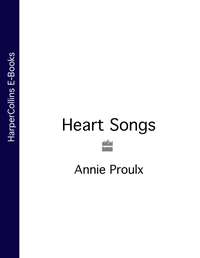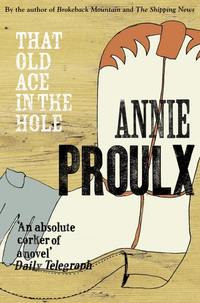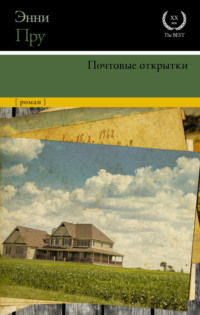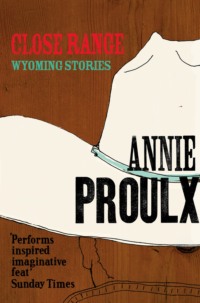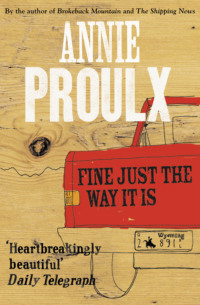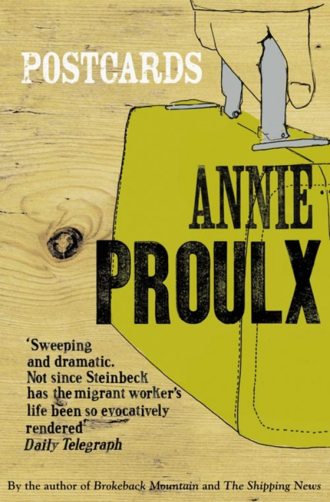
Полная версия
Postcards
‘Well, Billy was smarting to get out, and I can’t say I blame her. But I’m surprised Loyal would go. He’s a country boy from the word go. She’ll find you can take the boy out of the country but you can’t take the country out of the boy. It won’t be easy to milk all them cows, just Mink and Dub. Dub’s still here or is he off somewhere again?’ Her voice so custard smooth now it would cure a sore throat.
‘Been here pretty steady since his accident. But you know how he is. The two of them can’t do it all. Not run this farm, just the two of them. We’ll have to hire somebody to come in, I imagine.’
‘You won’t find nobody. Ronnie tried all last winter, this spring and summer, and I guess he got to know everybody for twenty mile around that could hold a pitchfork, and I’ll tell you, the best he could find was school kids and hundred-year-old grandpas with wooden legs and canes. Some places they’re takin’ on girls. How about Mernelle? She could milk, maybe. She’s comin’ on what, twelve or thirteen now? She get the curse yet? I used to milk when I was eight. Or you could milk while she takes over the house. Some say it makes the cows restless when a woman’s got the curse milks ’em. I never noticed it myself.’ The old lady sucked at her tea.
‘No ma’am. I don’t work to the barn and my girl don’t work to the barn. Barns is men’s work. If they can’t handle it they can hire. I give two boys to the barn, that’s enough. Mink’s already set me and Mernelle up to take on what seems like half his outside work.’
‘I’ve noticed that with the help so hard to get and the boys off to the War they’s quite a few of the farms for sale. And the way the cream prices moves around. Course it’s good now, with the War, but it could go down again. I notice that the Darter farm is been sold. The three boys is in the service, the other one’s in the shipyards, the girl’s gone into nurse’s training, and Clyde says, “I don’t know why we’re hangin’ around here when we could be makin’ good money instead of killin’ ourself.” They say he went over to Bath, Maine where the other boy is, they learnt him how to weld and he’s got a high-payin’ job now. They say she got one, too, and between what they get from the wages and what they got from sellin’ the farm to a teacher from Pennsylvania who’s just comin’ up for summers, they are fixed up good. Seems funny that Loyal and Billy would go off so sudden like that. He didn’t say nothin’ to Ronnie. Ronnie and him was plannin’ to go goose huntin’ one day this week. That’s the main reason we come by, so’s Ronnie and Loyal could set their time. I says they ought to try and get some of them hen hawks that have been takin’ my hens and now there’s a turkey gone. I don’t know as a hen hawk could lift a turkey, but I suppose they could eat it where they brought it low. But maybe it was a fox took the turkey. I don’t know how Ronnie’ll get along without Loyal, they was that close. You’ll find it quite a chore without Loyal. A worker.’
‘I suppose we’ll figure somethin’ out. But I don’t know what. One thing, I’m not goin’ in any barn and neither is Mernelle.’
3 Down the Road

HE MADE GOOD TIME, heading north for the end of the lake. He had his little roll of money, country money, dollar bills oily and limp from passage through the hands of mechanics, farmhands, loggers. He had enough gas ration stamps to get him somewhere. It wasn’t like anybody was after him. He didn’t think they’d ever be after him. That wall was built good, he thought. If the foxes didn’t dig in under. If nobody went up there. Who in hell would go up there? Nobody would go up there.
The roads had hardened in the autumn cold and there wasn’t much traffic. Good hunting weather. A few cars, a log truck coming out of the dark woods, leaving a double-curve of cleated mud where it turned onto the hardtop. Must of gotten stuck in some soft spot. He had forty-seven dollars, enough to take him some distance. If the car would hold up. It was in pretty good shape, a ’36 Chevy Coach, except for the back of the seat that had broke and had to be braced from behind with a wooden crosspiece. The heater only put out a trickle, less warmth than a bat’s breath, but the defroster did well enough. The battery was old, and the Coach was a bitch to start on a cold morning, about as simple as getting port wine out of a cow’s left hind teat. The tires still had tread. He’d nurse them along. If it broke down bad he could get work. Walk onto any farm and get work. What bothered him was the gas stamps. He only had enough for twenty gallons. That could just get him across New York state. He’d have to get it any way he could.
He didn’t think where he was going, just heading out. It seemed to him there didn’t have to be a direction, just a random traveling away from the farm. It wasn’t the idea that he could go anywhere, but the idea that he had to go somewhere, and it didn’t make any difference where. No spark had ever ignited his mind for the study of spiders or rocks, for the meshing of watch gears, or the shudder of paper pouring out of the black presses, for mapping the high arctic or singing tenor. The farm had had answers for any question, but no questions had ever come up.
West, that was the direction. That was where Billy thought there was something. Not another farm. She wanted a place with madhouses, some kind of War work, good money in the factories if she could find a job that didn’t bust her nails, save some dough for a start, go out Saturday night, hair curled, parted in the middle and pulled back by two red barrettes set with rhinestones. She wanted to sing. She sang pretty good when she got the chance. Go up to the Club 52 packed with guys from the base. Like Anita O’Day, cool, smart, standing there in front of the microphone, holding it with one hand, a red chiffon scarf dripping down from her hand, her voice running through the room like water over rock. Clear, but a little sarcastic.
He was supposed to get a job. The money was good, she said, dollar an hour and better. Guys were pulling down fifty, sixty bucks a week in the aircraft plants. He’d drive west, but keep to the border. Those cities she’d named, South Bend, Detroit, Gary, Chicago, those were the places. What Billy would have wanted, but his mind kept jumping away from whatever had happened. The gas would be a problem.
The road ran along the railroad tracks up near the lake. That was another way; he could ride the rails. He’d never done it, but plenty had. Dub had, even dumb Dub had bummed around, riding the boxcars in the times he went off his nut and drifted out and away. He’d come back a mess, stinking, lugging an old feed sack of trash, his hair stiff with dirt.
‘Presents. Got you a present, Ma,’ he’d say, pulling out the junk. Once it was about thirty pie pans, the edges gummed with baked-on apple and cherry syrup. Once five little bales of cotton about six inches high, the tags saying ‘A Gift from New Orleans, Cotton Capital of the World.’ Another time the best he could do was half a BURMA SHAVE sign. All it said was BURMA. He tried to tell them it came from the real Burma. And the time he brought back about fifty pounds of red dirt from somewhere down south, he didn’t even know where.
‘It’s all like this, all red dirt down there. Red as blood. Red roads, the wind blows red, bottom of the houses red, gardens, farms red. But the taters and turnips is the same color as ours. I don’t get it. Because there is red taters in this world. But not in the land of the red dirt.’ He dumped the soil in one of Jewell’s flower beds where he could look at it now and then and be reminded of the place it came from.
A light appeared and reappeared in the darkness behind him, gradually growing larger in the rearview. Loyal heard the whistle blow for a crossing, somewhere behind him, he thought, but when he steered around the long corner before the bridge, the train was there, its light sweeping along the rails, the iron shuddering past a few feet from him.
The worst was the time Dub had come back honed down to his bones, the scabs on his face like black islands and his left arm amputated except for a stub like a seal’s flipper. Mink and Jewell, all stiff in their best clothes driving down to get him, first time Mink had ever been out of the state. Dub called it that, ‘my flipper,’ trying to make a joke but sounding loony and sick. ‘Could of been worse,’ he said, tipping a crazy wink at Loyal. He’d only gone off once since then, no farther than Providence, Rhode Island, and hitching on the road, not riding the rods. There was a kind of school in Rhode Island he said, a place to learn tricks of getting things done with half your parts missing. They could fix you up with artificial arms and hands and legs made out of pulleys and aluminum. A new kind of plastic fingers that worked so good you could play the one-man band with them. But when he came back he was the same. Didn’t want to talk about it. Some VA place for servicemen, farmers had to get along the best they could. It was just a question anyway of how far you got before you were crippled up one way or another. A lot of people didn’t make it past the time they were kids. Look at Mink, pitchfork tines through his thigh when he was five years old, two car wrecks, the tractor rollover, the time the brood sow got him down and half tore off his ear, but he was still there, gimping around, strong as a log chain, getting the work done. Tuf Nut. The old son of a bitch.
Miles into New York state he pulled the car into a field behind a row of chokecherry trees. The broken seat back could come in handy, he thought, pulling out the brace and letting it flop down into a kind of narrow bed. But as he twisted near deep his chest seized up again, a blunt stake slammed into a place under his larynx, and with it a choking breathlessness. He sat up, dozing and waking in starts, the rest of the night.
No station came in clearly on the radio, not even the jabber of French and accordions, riding along the edges of the Adirondack conifer forests, spruce and miles of skeletal larch like grey woods static, sometimes a tangle of deer legs and phosphorescent eyes in the road ahead of him, far enough ahead that he had time to tap the brakes while he laid on the horn and watched them go, worrying about the brake lines, the worn drums. He passed houses not much bigger than toolsheds, threads of smoke floating out of the cobblestone chimneys, passed boarded-up log cabins, signposts saying ‘Crow’s Nest,’ ‘Camp Idle-Our’, ‘The Retreat,’ ‘Skeeter Gulch,’ ‘Dun Roamin.’ Bridges, water racing away, the gravel road punched with potholes, all the roads nothing more than notches through the tight-packed trees, roads that took their curves and twists from the St. Lawrence River thirty miles to the north. The strangeness of the country, its emptiness, steadied his breathing. There was nothing here of him, no weight of event or duty or family. Somber land, wet as the inside of a bucket in the rain. The gas gauge needle tipped down and he kept his eye out for a gas pump. The farther away he got the better it seemed he could breathe.
Late in the morning he pulled up to a tourist trap, BIG PINETREE, lying in wait in the trees beyond a long bend. He was half sick with hunger. Four or five old cars and trucks, standing so long their tires had gone flat. A row of sheds covered with signs: ‘Little Indian Moccasins,’ ‘Peanut Bride,’ ‘Balsom Pilows,’ ‘Lether Work,’ ‘Groceries,’ ‘Sovenirs,’ ‘Tire Change Wihle U Wait,’ ‘Lunchroom,’ ‘Botomless Cup of Coffee 5c,’ ‘Rest Room,’ ‘Gifts & Noveltys,’ ‘Auto Repears,’ ‘Worm & Bait,’ ‘Torist Cabin.’ There was a half-closed look to the place but the light was on in the pump’s round head, the glow shining through the red-painted Tydol Flying A gasoline. The parking lot as rough as a cob, full of mud sinks and washboard ripples. There was a garage bay with a hinge-sprung door that left a scraped semicircle in the gravel. Somebody had dumped a load of cordwood near the main building.
He went in. A wood lunch counter with a few stools home upholstered in red oilcloth, three booths varnished the color of orange peel. He could smell cigarette smoke. The radio was going, somewhere. ‘What a dart you placed in my heart the day that we parted.’ Beyond the counter were islands and aides of moccasins, pincushions, colored feather dusters with handles carved in the shape of a spruce tree, canvas water bags to sling over the car fender, felt pennants, wooden plaques burned with jokes and mottos, green bumper stickers stamped This Car Has Been to the Adirondacks, and on the wall the stuffed heads and mounted bodies of bass and pike, eight-pound trout with square tails, bear, moose and deer, a porcupine bigger than any of the bobcats arched on their birch half-logs, a king snake lumpily crawling over the door lintel and everywhere fly-specked photographs of men wearing knee-high hunting boots holding up carcasses and bodies.
‘Help you,’ said an irritable woman’s voice. She sat in one of the booths, comfortable in a space designed for three people, a fat girl with blond hair parted on the side and pinned back with a black grosgrain bow. She wore a man’s grey sweater over a housedress printed with seahorses. In front of her was a chicken salad sandwich cut square across the middle with strips of bacon hanging out the ends, and a pot of coffee beside a souvenir mug, a magazine folded open. He could see letters spelling out “The Telegram Came While I Was Two-Timing Joe.’
‘Like to get cup of coffee, sandwich, you got any more like that,’ pointing with his thumb.
‘I s’pose we can manage it.’ She heaved to her feet and he saw the wrinkled dungaree legs under the dress, the oily work boots.
‘Are you the Big Pinetree?’
‘Close enough. Big enough. Mrs. Big Pinetree. Piney’s in the Pacific and I’m here keepin’ the bears out of the lunchroom and fixin’ cars much as I can without no parts or no tires. Want it toasted?’
‘Guess so.’
She pulled the uncovered bowl of chicken salad out of a big Servel, the door around the handle discolored with garage grease, slapped three pieces of bacon on the grill and laid three slices of white bread to toast. She pressed down on the bacon with a spatula, forcing the oil out. She opened the Servel again, grasped a head of lettuce like a bowling ball, tore off an inch of leaves and dropped them on the cutting board. She turned the bacon, turned the slices of bread, pressed them with the spatula. She got the pot of coffee from the booth and poured it in a white mug marked ‘Souvenir of Big Pinetree in the Adirondacks.’ She slid the spatula under a slice of bread, toasted dark with a narrow rim of black around the crust, slid it onto a plate, plastered it with Silvernip mayonnaise, put half the lettuce on it, whacked a scoop of chicken salad dead center, then picked up the second dice of toast, laid it in place like a mason dropping a brick in line, hit it with the mayonnaise, the rest of the lettuce and the hot bacon. When the last dice of toast was on she looked up at Loyal, holding the knife.
‘Kitty-corner or straight?’
‘Straight.’
She dipped her head in a single nod, laid the knife dead center, horizontal with the edge of the toast, raised the heel of the blade and cut it clean. She pulled a two-inch cream bottle out of the Servel and thumped it all on the counter in front of him.
‘There you go. I don’t trust guys like it cut kitty-comer. City style. Fifty-five.’ He dug out the change, then sat eating, trying not to cram and wolf. She went back to her magazine and he heard her strike a match, heard the rounded exhalation of her breath, smelled the smoke. She was big, but she wasn’t bad.
‘This is a hell of a good sandwich,’ he said. ‘Any chance of another cup of coffee?’
‘Help yourself,’ she said, rattling the pot on the booth table. He brought his mug over and she poured the coffee, steadying his mug with one hand. Her fingers touched his.
God! He hadn’t washed up since—. He started to jerk away but thought of the gas. He drank a mouthful of coffee, trying to force down the nervous tightness. He sat down on the bench across from her and cocked his head a little.
‘Hate to leave good company,’ he said, ‘but I got to be on my way.’
‘Where you headin’?’
‘Out west. Thought I’d get off the farm, get in one of the War work factories, make some money.’
‘Wish I could do that. They’re makin’ real good wages. Women, too, payin’ ’em the same as men on the production lines. Rosie the Riveter. I’m stuck right here until Piney gets back, and I don’t see five cars a day. Sure wish I could just stow away in your backseat.’
‘I can guess what Big Pine would do. I guess my head would be up on that wall next to the stuffed skunk.’ He got a whiff of a cold sourness from her like the gravelly sod under stones.
She laughed and gave him a look, but he dipped out from under it with a wink.
‘Hey, Mrs. Sweetheart Pinetree.’ He made his voice soft. ‘Chance you could sell me a little extra gas? Awful short on coupons.’
‘Well, you stopped the right place, but it’ll cost you double.’ Her voice hardened up, she seemed to turn into a kind of pot metal. He went out with her and leaned against the car while she filled the tank with gas. Out in the light he saw she wasn’t much, just another penned-up woman who didn’t know how to dig her way out, all grease and grits, but ready to give it away to anybody that came by. Her knuckles were skinned, her nails rimmed with black. She was surly now, too, feeling his intention to get going now that he had the gas.
‘That will hold you.’ She shoved the yellow cat that had come twisting around her legs away with her foot, lofting it a few inches into the air. ‘Beat it, cat.’ She meant him, of course.
She didn’t seem to know how good off she was, he thought. That she could be here, comfortable, running this place, eating big sandwiches, all the gas she could want, cheating on the gas, getting black market prices, cheating on Big Pinetree out there in the Pacific, touching his hand, she didn’t know who the hell he was, and God, poor Billy, where was she? The woman didn’t know how close she was coming.
‘How about some kind of bonus for the one that’s sellin’ you the gas.’ She bunched up her mouth.
‘Maybe we just ought to step back inside for that kind of bonus,’ he said, smiling like he was holding nails in his teeth, the oily metal taste of nails ran right to the back of his throat, and he could hardly wait to get the door slammed shut and locked.
His arms wrapped around the postcard rack for support and he fought for clear breath. He wasn’t sure what was going on, but all of a sudden it was like digging a pit on the hottest day to pull a breath into his caved lungs. His pants were wadded around his boot tops. He could see the stained underwear and he wanted to haul them up, but he couldn’t get a breath.
‘That looks cute,’ she said from across the room, watching him retch for air. She walked toward him. ‘I said that looks cute, you dirty chokin’ bastard.’ She threw a sandwich plate in his direction. It hit the postcard rack and fell into his pants. He could see it between his ankles, see the hardened grease and a red tick of bacon, a white dirty plate. How had he got into this. How had he got into this. He didn’t want her, he didn’t want anything from her but the gas.
He dragged for a breath, kicked the plate onto the floor, got his pants up and wheezed in another breath. Something the hell wrong. A heart attack or something. He stumbled against the door. His hands were full of postcards. There was wind outside, and cold air, and if he was going to die he wanted to do it outside, not in here.
‘Go ahead, get out,’ she said. ‘You’re lucky. You’re lucky I don’t get down Piney’s shotgun. If you’re smart you’ll be out of here and travelin’ in about one minute or I’m going to get down Piney’s shotgun.’ She was wading toward him. He twisted the lock and got the door open.
The parking lot was compressed by the black spruce across the road, stacked on itself as a scrap of paper folded smaller and smaller. His car waited pale against the trees, the chromed handle on the driver’s door a silvery rod that, as he grasped it, connected him with the possibilities of distances. Wheezing and hauling for breath, he swung inside the car, it started, smooth as syrup, started and he backed across the gravel, out onto the lonely road past the waves of spruce and fir, the nicked driveways leading to dark, mosquito-stitched camps in the forest.
As he pulled out onto the road something moved near the woodpile. He thought it was a falling block, but it was the yellow cat, the same color as the fresh wood. They’d had a barn cat once, the same butterscotch fur. He remembered how it favored his mother, sat on the porch gazing up at her. She had called it Spotty and fed it cream. It made the mistake of rubbing against Mink’s leg when his temper was up, shoveling manure out of the gutter and he’d broken its back with a swipe of the shovel.
In an hour he could breathe more easily. The front seat was strewn with postcards, seventy or eighty postcards all showing the same thick-bodied bear with a red snout coming out of the black trees. ‘Must be worth about eight dollars,’ he said aloud and took a cold pleasure in the minute gain.
4 What I See
The land levels as he comes down out of the trees and into miles of vineyards, the crooked branches crucified on wires. The Coach jars along a road knotted with tar patches, unraveled along the edges, the crumbling asphalt mixing with the gravel, weeds, rows of creosoted posts with winking reflectors, angled tops. But the land as monotonous as a lawn, and on he goes past the tourist cabins with their tiny porches and metal chairs, the gas pumps and whirligig ducks, the metal signs saying Nehi.
The sky grows. Yellow dirt roads cut away to the north and south. Plaster ducks on withered lawns, snapping flags in the wind coming down the flat rows. A dog races beside the car for a hundred feet.
In the steamy warmth of the Olympia Cafe he eats thick pancakes with Karo. The coffee is heavy with chicory. He leans his elbows on the counter watching the cook. A kid parks his Indian motorcycle and comes in. He pulls up his goggles, exposing white circles of skin.
‘Dogs’ he says to the cook. ‘Dogs gonna dump me yet. I hit one son of a bitch come out and went for my leg.’
‘That right.’ The cook presses the potato with his crusted spatula. ‘It better not a been my Irish setter. Rusty, just up the road here at my place.’
‘Might a been,’ says the kid. ‘No, no, I’m just kidding you. It was a black one about five mile back. Big son of a bitch. Size of a cow, damn near. It wasn’t no Irish setter.’
In Pennsylvania the vineyards are spaced farther apart. The grapevines fade, cornfields swell up. The levelness of the land disturbs him with its easiness. The road is a slab seamed with asphalt ridges that strike the worn tires, jar his hands and shoulders, on and on. Cars turn off the highway onto side roads ahead of him, raise dusty billows. The radio is nothing but static and broken voices crying out a few words. ‘Jimmy Rodgers … pray to God … happy birthday… in the European theater … goodby folks … Pillsbury … organ inter … Duz does … the story of a … oh … hello folks … Jesus said … our listeners write in …’
He passes old trucks humping along on bald treads. He is worried about his own tires. He turns off onto a gravel road but the stones fly up, dust chokes him. Grit in his mouth. When he rubs his fingers against the ball of his thumb he feels hard grit. And turns back onto the concrete.
Miles of snow fence. A peregrine falcon balances on a forgotten hay bale. The flatness changes, the earth’s color changes, darker, darker. Prayers and long silences out of the dusty radio. In the autumn rain the houses become trailers among the trees. Oaks come at him, flash, burst into thickets, into woods. H&C Café, EATS, Amoco, GAS 3 MI. AHEAD. Fog. A little night fog. The sod in Indiana a deep brown-black. The cattle sink into its blackness. Southering geese spring up from the sloughs and ponds, scissor over him in the hundreds. The water is streaked with the lines of their angular necks, fractioned by dipping heads and beaks.




